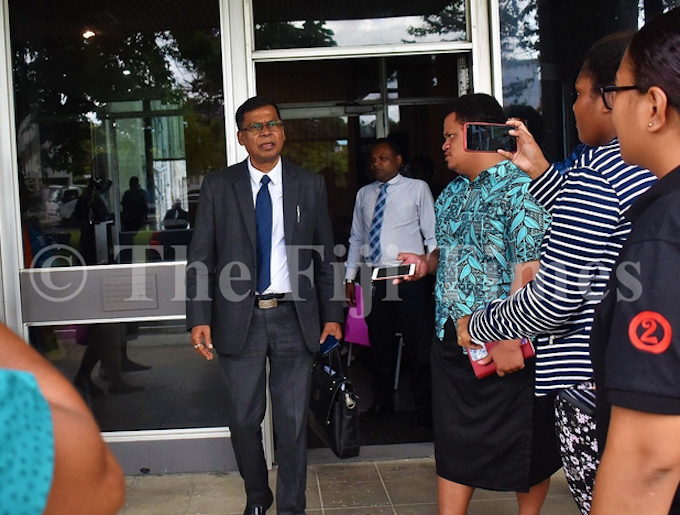By Rakesh Kumar in Suva
Fiji’s Minister of Finance and deputy Prime Minister Professor Biman Prasad says all coalition partners in the new government have agreed to a closer relationship with the Suva-based regional University of the South Pacific (USP).
He said government would restore confidence in USP and respect the governance structure of the institution.
Professor Biman Prasad said that it was a commitment made by all coalition partners in government.
He said Fiji would now be “a real partner” with USP.
“We’re going to restore that confidence, we’re going to respect the governance structure of the university,” he said.
“This means that when the university council makes a decision, we as members in that council will respect that decision, unlike the previous government and their reps, who disregarded it because they didn’t win in the council.
“Things didn’t go in their favour; they tried to [withhold] the grant of the university through some bogus claim that there should be more investigation.
“None of that was true, none of that was reasonable.”
Vice-chancellor ban already lifted
He said the ban on vice-chancellor Professor Pal Ahluwalia, who was forced to become based at USP’s Samoa campus after being deported from Fiji in 2021, had already been lifted.
“As you know, the Prime Minister has already lifted the ban on Professor Pal Ahluwalia who was deported in the middle of the night,” he said.
“That was a sad thing for this country — it was an attack on democracy, it was an attack on academic freedom.
“So we are very pleased that our government has been able to remove that and we look forward to a very cooperative relationship with the University of the South Pacific and indeed with all other universities in the country because we believe that empowering the universities, giving them academic freedom, giving them autonomy is good for our students, good for our staff, good for the country.”
Professor Prasad said the government would work closely with tertiary institutions in the country.
“This government is going to work closely with the universities and other tertiary institutions to make sure that we empower them, we use resources at those universities to help government to work in policy areas, analyse data.
“As a government, we are going to be very, very liberal with the academic community in this country because we want them to know that this is a government which is going to be open, which is going to help them do research because we will not be afraid of critical research being done by academics, whether they are in Fiji or from outside.
“They will have access to data wherever possible. They will have access to the processes and the support to do research in critical areas.
“That will be very, very important for the government.”
#Fiji plans to ‘restore confidence’ in USP partnership, says Professor Prasad #AsiaPacificReport @fijitimes @bimanprasad #FijiPol #education #academicfreedom @USPlibrary @pal_vcp @ShailendraBSing @USPWansolwara @shrek45 https://t.co/MHM0kTlr2k pic.twitter.com/tXybbQwXkz
— David Robie (@DavidRobie) January 3, 2023
Half century of innovation
Pacific Media Watch reports that the University of the South Pacific is one of only two regional multinational universities in the world — the other is in the West Indies.
USP is jointly owned and governed by 12 member countries — Cook Islands, Fiji, Kiribati, Marshall Islands, Nauru, Niue, Samoa, Solomon Islands, Tokelau, Tonga, Tuvalu and Vanuatu.
The university has campuses in all member countries with Fiji having three campuses.
For more than a half century, USP has been leading the Pacific with distinctive contributions in research, innovation, learning, teaching and community engagement.
Rakesh Kumar is a Fiji Times reporter. Republished with permission.


